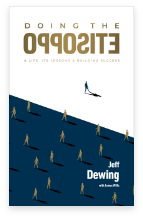Blog

“I am still learning.“
Michelangelo, aged 85
Atul Gawande had spent the majority of his life learning. As a surgeon at the prestigious Brigham and Women’s Hospital in Boston, he had dedicated nearly a decade to studying his craft, and another half a decade honing it. His impressive tenure had seen his complication rates drop far below the national average, and he was already considered one of the foremost surgeons in his field. It was at this point – undoubtedly the height of his career thus far – that he noticed something strange.
Atul had consistently improved year on year, with his number of complications dropping at a steady rate, until, five years into his time at the hospital, his performance (while still stellar) began to improve at a slower rate. A few years later, he had hit a plateau. Unable to continue to develop his skills beyond what seemed to be an educational brick wall, he made a change – he hired a coach.
It’s a commonly held belief that some amongst us excel simply because of talent and skill. The reality is that excellence is driven by diligence. Those who seek to develop themselves beyond what is considered their limits are those who achieve beyond what is considered possible.
John Daly – often considered one of the most naturally gifted golfers in history, but notoriously fond of heavy smoking and heavier drinking – once called out to Tiger Woods as he saw him leaving early one morning, asking him why he was always practising in his spare time (as opposed to enjoying his success). Tiger responded, laughing, that if he had Daly’s natural skill, he wouldn’t have to practise either.
Despite his infectious charisma and his undeniable natural talent, Daly never reached the level of excellence that Woods did. His performance was inconsistent, and his natural talent was never fully realised. Woods, meanwhile, excelled far beyond all of his peers. Not because he was more naturally gifted, but because he worked endlessly on his craft. Throughout his career, even into the later stages, Woods always sought to improve upon himself, seeking any source of coaching, information and insight that would increase his aptitude on the links.
There is always the risk (never realised by Daly) that you can get too comfortable in your excellence. No one is too good to improve their craft and no-one reaches a point where they cannot improve further.
So what is the key to world-class excellence? Natural aptitude helps, constant practice is certainly a key element, but the true secret to continued development is simpler than that. You need guidance.
To many surgeons at the level that Atul had reached, the idea of asking to become a student once again was laughable. Indeed, many of them were considered experts within their fields and would only consider returning to a classroom as a teacher, not a student. As Atul considered this, it occurred to him that in the eight years that he had been practising, no one had given him any notes on his performance at all.
Determined to improve upon himself, he recruited a former professor of his and invited him to sit in on an operation. Having executed the procedure flawlessly, he went to speak to his professor. He found him sitting with four pages of handwritten suggestions for improvement. Stunned, Atul realised that although he had been unable to see any scope for improvement in his work, an external set of eyes had noted things he had not even realised he was doing.
The lesson to be drawn from this is simple, albeit profound. Although we may not perceive it ourselves, there is always room for further improvement and the easiest way to find that insight is through guidance and coaching
In the world of business, many leaders may consider themselves infallible experts, but there is a sea of untapped insight that can be used to improve operations and skillsets. By inviting others to comment on our performance, even the most experienced business people can find ways in which to improve.
It’s also worth noting that not all sources of insight are those perceived as ‘more expert’ than ourselves. A common practice amongst trailblazing businesses is the concept of ‘reverse mentoring’. This is where junior employees are invited to advise executives, to present insight that only someone at their specific level may have. I imagine that other leaders may have had a similar experience of struggling with a technical problem, only for a more tech-savvy junior employee to exasperatedly suggest a simple fix. By encouraging juniors to share the skills, the skillset of the leader becomes that bit more effective.
So if you feel that you’ve reached a plateau, don’t let pride become the enemy of perfection – look for coaching and guidance from any and all sources, and you may just find there’s still a lot to learn.

